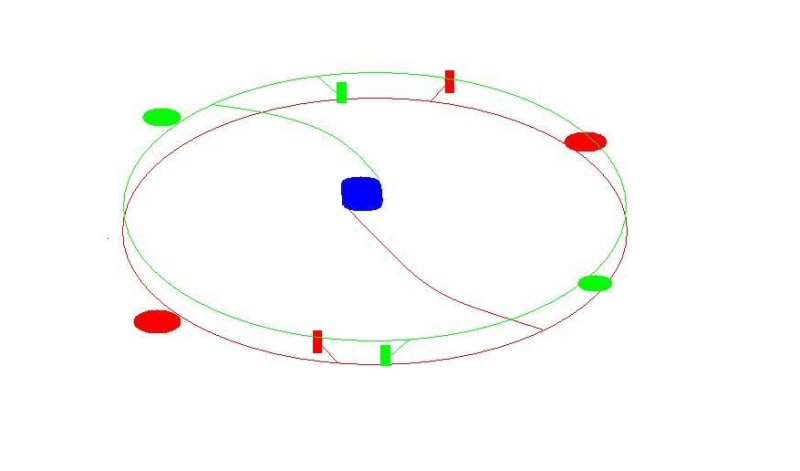So you'd like to park in Near Space to gather resources and analyze the challenges beyond.
Good idea but you'll need lots of power to sustain life. You'll pump nutrients for plants and animals. Your power needs also include heating, cooling, lighting and regeneration of air/water.
Power from those constantly moving lines of electromagnetic force that surround the planet can be harvested via a lightweight induction system.
Though these lines are considered weak when examined closely, they exist on a grand scale. You need grand loops to collect their grand power. The requirement for those loops is that they have almost (but not quite) no weight at all.
Colossal lariats made of mere Nylon thread will do the job. Centrifugal/centripetal force can hold it all together and in workable shape. You'll be like Will Rogers casually spinning ropes while doing your chores. A three horsepower motor might start one spinning loop 100-miles in diameter right there in the vacuum of space. You'll also need smaller loops to serve as secondaries in this big, spinning transformer. You will have alternating current so voltage regulation can be done easily. The needle/reflector combination serves as an ion gun to keep your loops moving and that means you might never touch them -- no bearings to wear out!
The stereotype of Nylon is that the stuff is non-conductive. However anything conducts some. In the vacuum of space and at the voltages available, the conductivity of thin filament in the Nylon family is impressive.
For instance; a 100-mile loop weighing 40-pounds might produce only .0001 ampere but should produce 1,000,000,000 volts. That works out to 134 horsepower. Ohmic loss all but ceases to exist in this circumstance. The whole assembly would weigh far less than solar cells.
I would use at least two loops and spin them in different directions. This might help cancel precession and keep you stable.
Simple ion guns would use electricity you generate to move sections of your operation or the whole thing anywhere you want.
Rocketry will not work well in space and therefore, this and every other polemic is worth exploration.
Like this entry?
-
About the Entrant
- Name:Jack Wiegman
- Type of entry:individual
- Software used for this entry:The Gimp
- Patent status:none








